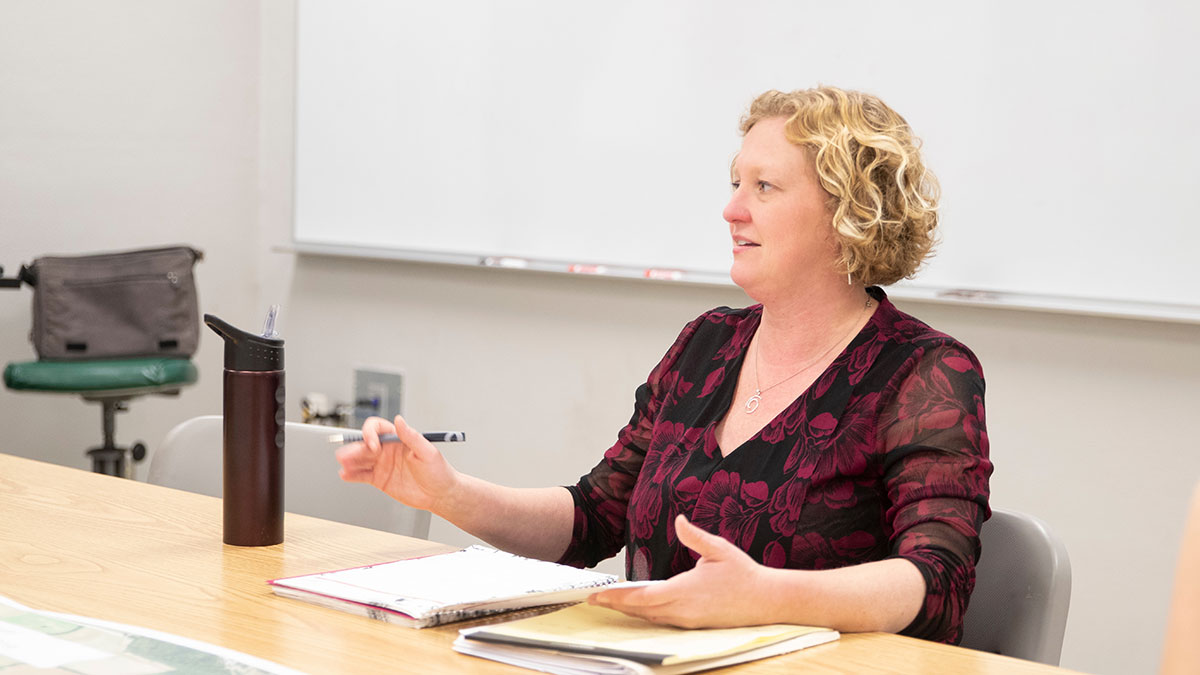Even during the pandemic, our careers must go on.
This reasoning prompted the American Association of Geographers (AAG) to move their annual conference to a virtual format rather than cancelling, as initially planned.
The conference occurred virtually April 6-10.
Dr. Krista Evans, assistant professor of geography and planning, presented research at the virtual conference despite difficulties caused by the change in format.
About her presentation
Evans studied tiny house villages created for homeless communities.
She connected with many interested in the topic through the virtual conference, including two advocates for the villages.
“Despite technical problems, the number of people who were able to join in the session and engage with the research was impressive,” Evans said.
Those present at Evan’s session were all early career faculty.
This varied from the usual mix of faculty, students and practitioners, Evans explains.
“Those of us present all knew the importance of keeping our research agenda on track for our careers, despite this pandemic,” Evans said.
About the adjustments
Conference participants transitioned from the usual in-person encounters to virtual interactions.
The changed shifted more than their means of presenting.
It also prompted participants to adapt their approaches to networking.
“Using Zoom chats and following up by email allowed us to still network our research through the virtual platform,” Evans said.
Dr. Toby Dogwiler, department head of geography, geology and planning, noted the uncertainty caused by the pandemic—including budget cuts and travel restrictions—makes these format changes more important.
“It is important that professional societies such as AAG experiment with virtual formats as a way to maintain broad participation and engagement in their events,” Dogwiler said.
About the conference
AAG is the largest annual geography conference in the world.
The conference covers all topics related to geography, including human and cultural geography topics, physical geography and the geographic information systems (GIS).
“It’s an extremely important venue for presenting research and ideas and staying informed about geographic happenings,” Evans said.
Learn more about Evan’s research
Discover more from CNAS NewsWatch
Subscribe to get the latest posts sent to your email.

